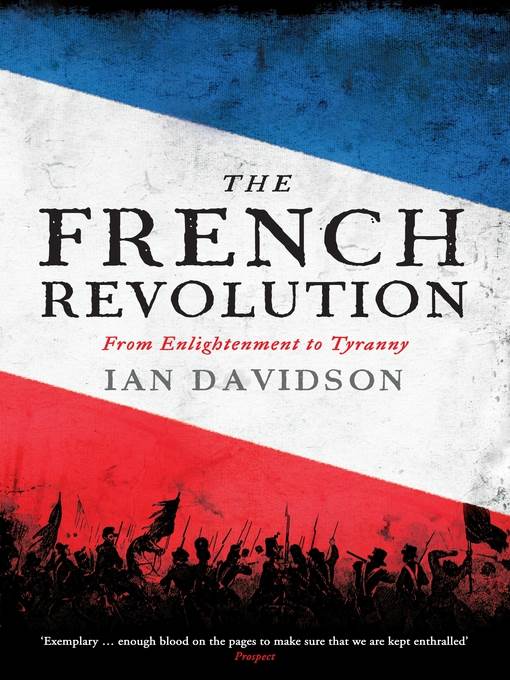
The French Revolution
From Enlightenment to Tyranny
کتاب های مرتبط
- اطلاعات
- نقد و بررسی
- دیدگاه کاربران
نقد و بررسی

June 15, 2013
Orphaned by gun violence, ten-year-old Benedict, moves from Rwanda to Swaziland with grandmother Angel Tungaraza, the heroine of Parkin's first novel, Baking Cakes in Kigali. The new house, filled with bookshelves and boasting a garden rife with bugs and birds, entertains his thoughtful imagination. While Benedict's cousins play sports all day, he chats up the neighbors, and his curious nature draws him to the town's more troubled residents. There's schoolgirl Nomsa, whose teacher pays her a suspicious amount of attention; Petros, a cowherd dreaming of buried treasure to finance a marriage; and housekeeper Titi, who's being wooed by a married man. Intuiting that Angel is now at loose ends, Benedict devises a scheme to circumvent the country's restrictions on female-owned businesses. Soon Angel is teaching the local women the fine art of cake decorating and partnering with Ubuntu Funeral Homes to memorialize the dead with culinary confections. Parkin has a light touch, but don't be fooled. Under the surface lies the more complicated narrative of life under a monarch in a country where women are undervalued, unemployment and crime are rampant, and HIV devastates the young. VERDICT Parkin's novels have been compared to Alexander McCall Smith's Botswana books, exuding generosity of spirit known in southern Africa as ubuntu. Published last year in England, this optimistic, life-affirming novel should find wide readership in the States.--Sally Bissell, Lee Cty. Lib. Syst., Estero, FL
Copyright 2013 Library Journal, LLC Used with permission.

October 31, 2016
Davidson (Voltaire: A Life), a former correspondent and columnist for the Financial Times, aims to correct modern misperceptions of the French Revolution that toppled the ancien régime in 1789 and ushered in the First Republic. The French Revolution was actually a series of revolutions that began peacefully, Davidson argues, after a group of educated young men set out to build a new state based on the rule of law rather than royal privilege. Within a few years, however, due to both social and economic factors, “the Revolution... entered a period of frenzy and fear, of public and private accusations, of secret denunciations and betrayals.” Though France’s new constitution contained lofty democratic ideals, the bourgeoisie and sansculottes turned on one another as a result of recurrent food shortages, ongoing wars and counterrevolutionary uprisings, and especially the rampant inflation caused when the fledgling government issued paper promissory notes called assignats. At the height of the Terror that gripped the country in 1793–1794, especially in Paris, 35,000–40,000 people died as a direct result of the revolution, most of them executed for intangible offenses. Maximilien Robespierre’s downfall ended the Terror and restored order, but Davidson persuasively argues that the aftershocks of this most turbulent era continue to reverberate into the 21st century. Maps & illus.

























دیدگاه کاربران